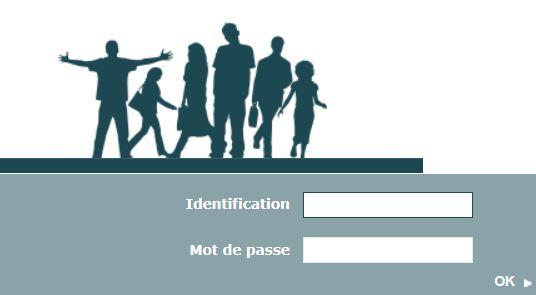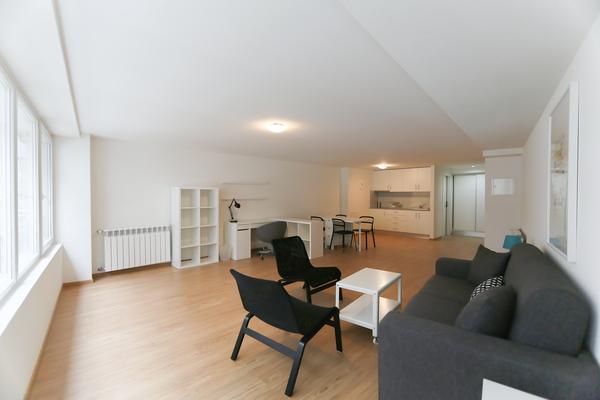Education Office Newsletter - July 2015

© 2015 EPFL
As the academic year is drawing to a close, students have deserted the corridors to make way for various renovation works to better accommodate them this September. The time has come to inform you of the latest news in educational affairs this spring, and we take this opportunity to wish you a pleasant, well-deserved summer break!
Albertine Kolendowska
Contents
- HR changes within the Education Office
- IS-Academia: Management of special needs requests, changes to the FRAC form, access to notes via PocketCampus, IS-Academia adjusted to accommodate MOOC students
- Statistics Observatory
- Housing office
- Office of the Vice Provost
- Registrar’s Office
- CAPE/Clickers
HR changes within the Education Office
In early June, Magali Favre left the Education Office to take on the administration of the Doctoral School with Dr Jeroen van Hunen. Her activities in managing student associations were taken over by Ms Heidy Alonso, who continues to manage the DAF Secretariat part-time. In July, Melina Monod left the DAF Secretariat to join the Study Programs Promotion department. Ms Vanessa Severin joined the DAF Secretariat (100%), complementing the team to give us the necessary resources to manage the administration of the Office of the Vice Provost for Education along with DAF.
I would like to take this opportunity to warmly thank Ms Magali Favre for her dedication in managing the associations, to wish Ms Heidy Alonso every success in her new duties and to welcome Ms Vanessa Severin.
For further information: daniel.chuard@epfl.ch
IS-Academia
 - Management of special needs requests
- Management of special needs requests
Quite a few new features and improvements occurred in the second quarter of this year. In April, a new module to manage requests for study or exam adjustments for disabled students was developed and deployed with input from the Registrar’s Office (SAC) and Student Affairs (SAE). This development makes it possible to manage the whole process from the IS-Academia administration portal while offering better data protection.
- Changes to the FRAC form
The Academic Registration Form (FRAC) has been overhauled to optimise the various stages of processing by SAC. The form has also been integrated into the student portal.
- Access to notes via PocketCampus
A pilot project was conducted in June with the PocketCampus team in order to allow students using this mobile app to access their notes. A beta testing group of IT students was formed for this purpose and is soon to be enlarged, given the already highly positive feedback. This feature should be available to all students for the 2015-16 autumn term.
- IS-Academia adjusted to accommodate MOOC students
It is now possible to monitor learners who have passed a campus-based exam organised through the Agence Universitaire pour la Francophonie. The data of the persons concerned have been imported, new "Open Courses" curricula created and new documents drawn up. MOOC students who succeed in their campus-based exams are awarded a formal certificate of achievement and a statement of results.
For further information: isa@epfl.ch
Statistics Observatory
 The second quarter brings along the spring dashboards. As a reminder, the spring edition covers the following areas:
The second quarter brings along the spring dashboards. As a reminder, the spring edition covers the following areas:
• Inter-institutional benchmarking
• Student provenance
• Winter session of the foundation year exam
• Bachelor – Master cohort surveys
• Performance of outgoing exchange, minors and scholarships
• PhD application exam
• PhD student supervision
• Doctoral courses
The cohort survey conducted every other year is particularly interesting. We note that the success rate of students who start on a Bachelor and obtain a Master is relatively stable – between 53% and 57%. Additionally, over half of students who successfully complete their curriculum do so in the shortest possible time and 23% take an extra year (usually the foundation year).
The enrolment forecast for the start of the 2015-16 academic year is also noteworthy. For the Master curriculum we observe a 15% increase in the number of applicants compared to 2014. In terms of admissions, this translates into a 7% increase in enrolment (with an admission rate of 30%, which is slightly lower that in previous years).
As for new bachelor students (BA1), numbers are also likely to increase given the global rise in the number of applications. This trend can be followed on a weekly basis by looking up the Friday statistics on the OGIF website.
For further information: statistiques.formation@epfl.ch
Office of the Vice Provost
The Delegate for International Affairs, Antoine Fromentin, has joined the Office of the Vice Provost for Education. He will work in close cooperation with DAF services in managing agreements with partner universities, student exchanges and relationships with the world’s top universities.
In cooperation with DAF and VPSI, the Vice Provost for Education is working out the structures of a future “Extension School”, to bring all courses outside the bachelor, master and PhD curricula under one roof. This should cover both campus-based continuing education and online courses (MOOCs).
For further information: pierre-andre.besse@epfl.ch
Housing Office

After 9 months of renting out 25 studios in Rue St-Laurent in Lausanne, we are pleased to report an initially positive outcome. A few tenants are leaving the premises to rent on the classical market, making way for new arrivals. These flats have provided them with a base in Lausanne, giving them time to look for more permanent accommodation.
We are also helping the Valais campus to introduce a small offer of housing, in close cooperation with DII. We take this opportunity to recall that only the DII is entitled to sign leases on behalf of EPFL and that all requests should be submitted either to the Housing Office, or direct to the DII.
Finally, the Housing Office is regularly approached by investors for market research or with requests for cooperation. A proposal of several housing units in Renens is currently being reviewed internally.
For further information: logement@epfl.ch
Registrar’s Office
We are pleased to announce that Mr Loïc Solca joined the Registrar’s Office on 15 June. He will have three main tasks: academic management of learners in online education (particularly MOOCs), backing up Ms Sauthier for room reservations, and support to the Doctoral Students' Office and doctoral programmes. SAC and DAF wish Mr Solca every success in his various missions.
For further information: jean-paul.festeau@epfl.ch
CAPE /Clickers
 In autumn 2014, the number of lecturers using clickers in their courses at EPFL had doubled and the number of students attending classes with clickers had increased from 700 to 2,600. EPFL has accompanied this growth by purchasing additional hardware and licences. Today, more than a thousand clickers and 500 smartphone licences are available to lecturers. Since 2011, the Teaching Support Centre (CAPE) has supported lecturers using clickers by offering individual appointments with personalised advice and dedicated training workshops.
In autumn 2014, the number of lecturers using clickers in their courses at EPFL had doubled and the number of students attending classes with clickers had increased from 700 to 2,600. EPFL has accompanied this growth by purchasing additional hardware and licences. Today, more than a thousand clickers and 500 smartphone licences are available to lecturers. Since 2011, the Teaching Support Centre (CAPE) has supported lecturers using clickers by offering individual appointments with personalised advice and dedicated training workshops.
Increasingly used in higher education, clickers are intended to encourage students to participate in class by answering interactive questions live. Students can submit their responses via a clicker box or a connected device like a smartphone. A graph showing the responses received is generated in real time and can be used by the lecturer to elicit reactions from the students. Especially useful for large classes, clickers can potentially:
• Make students more active during classes;
• Enable students to obtain feedback on their learning;
• And allow lecturers to get feedback on their teaching.
In early 2015, CAPE launched a dedicated website for both students and teachers - http://clickers.epfl.ch. Designed as a step-by-step guide, the "teachers" section of the site covers all technical and pedagogical aspects of using clickers, from borrowing the equipment to strategies to boost interactivity, including how to design appropriate questions.
Unlike the vast majority of existing web sites on clickers, this site stands out by being available in French (in addition to English).
Also new in 2015, the Library has taken over management of clicker loans to students from AGEPoly. While making borrowing a clicker simpler for students (loans without deposit, extended opening hours...), this new process should also make the logistics easier for lecturers by limiting the need to distribute clickers in class.
Lecturers interested in clickers may contact Cécile Hardebolle by e-mail (cecile.hardebolle@epfl.ch) or by phone (extension 3 22 70), or visit the Teaching Support Centre (CAPE, office BI B2 432 on the 2nd floor of the BI building).